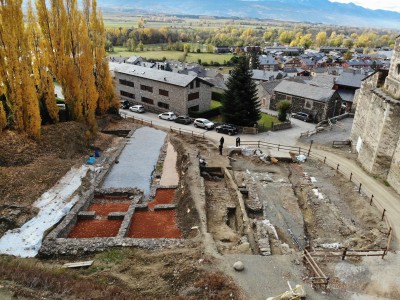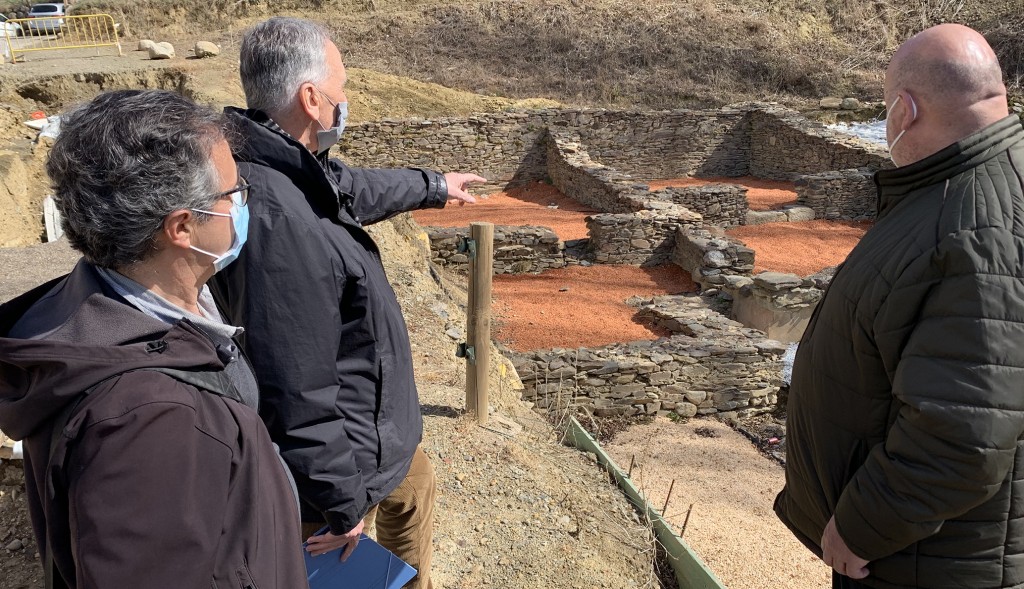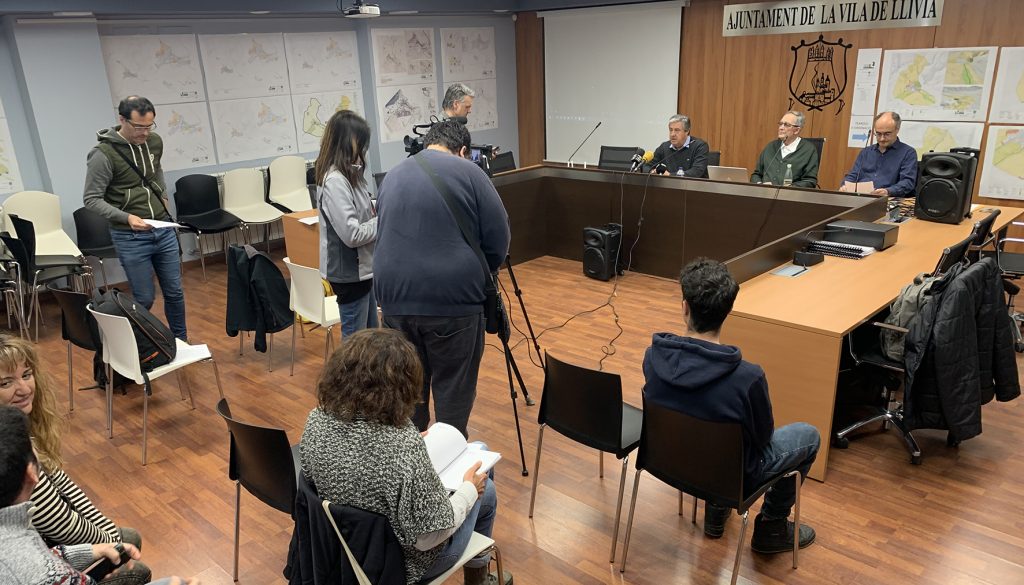
A new collaboration agreement will allow archaeological works to continue at the Roman forum of Iulia Libica (La Cerdanya) in a stage that will fully consolidate the site as one of the most important in the country and the only one in the Pyrenees.
The director of the Iulia Libica project, Josep Guitart, the member of the Llívia City Council, Josep Ramon Rotllant, and the director of the Catalan Institute of Classical Archaeology, Josep Maria Palet, announced on April 20, 2022, the signing of a new collaboration agreement for the next four years (2022-2025), which will give continuity to the archaeological works at the Iulia Libica Roman forum.
The commitment of the institutions involved (Government of Catalonia, Girona Provincial Council, Llívia City Council, Autonomous University of Barcelona, and the Catalan Institute of Classical Archaeology) has remained intact since this project began in 2013.
The previous archaeological campaign was conditioned by the relocation of utility lines (gas and electricity), which prevented extensive excavation.
The 2021 archaeological campaign was conditioned by the need to move the medium-voltage power line and the gas pipeline that passed through the middle of the forum and prevented an extensive excavation. The relocation of utility lines was completed at the beginning of April and sets the starting point of the 2022 campaign, which is planned in two stages: one in May, and the other from September to October, when the unification of the entire eastern part of the forum can finally begin.

In the first stage of the annual archaeological campaigns, it was demonstrated that the remains of the forum of this ancient city, which was a municipium, capital of the Ceretan people, and its religious, political, and administrative centre, were preserved at this point in Llívia.
“The Roman Iulia Libica was a great commercial centre, but also a point of territorial control”, explained Josep Maria Palet.
We know today that the construction of the forum began in the time of the first emperor, Augustus. And the initiative most probably came from Augustus himself, coinciding with his third trip to Hispania between 15-13 BC, a time when he promoted the creation of new cities and also new forums within the framework of the administrative organisation of Hispania Citerior.
It is also, for instance, the time of the foundation of Barcino (Barcelona). It seems clear, from the results of the excavations so far, that the Roman forum of Iulia Libica was begun at this time, but that it was not finished with all its architectural and sculptural decoration until the time of Emperor Tiberius from the year 14 AD.
The exceptional historical and heritage value of the archaeological site of Iulia Libica, the only known Roman forum in the interior of the Pyrenees, and the good preservation of its archaeological remains have led to the purpose, since 2018, of continuing the excavation with an extension, in order to discover the entire site, study its details in-depth and, once the excavation has been completed, make the most of the remains for visits and dissemination.

The audiovisual Iulia Libica. Ciutat romana dels Pirineus
During the event, a new three-minute promotional audiovisual was also featured. The video can be seen on social networks, but it was born out of the need to raise awareness of the site among the many visitors to Llívia who come across an open archaeological excavation.
The audiovisual explains the significance and objective of the archaeological works at the Roman forum of Iulia Libica. Excavation is being carried out in one of the most emblematic points of the heritage site of Llívia, next to the church of Santa Maria dels Àngels, near the Museum of Llívia, and right in the middle of the path to the Castell.
The script and direction of the audiovisual were by Josep Guitart (UAB-ICAC), Cèsar Carreras (UAB) and Gerard Cunill (Llívia Museum). The audiovisual production was carried out by Josep Padró Piedrafita. Aerial photography by the company Arqueòlegs.cat. And the animation and 3D by Carles Casanovas.
Related news:
«El foro romano Iulia Libica de Llívia, protagonista en la prestigiosa revista Madrider Mitteilungen», ICAC, 17 de febrero de 2022.
«Una parte significativa del foro romano Iulia Libica quedará al descubierto, ordenado y señalizado terminada la actual campaña de excavaciones», ICAC, 27 de mayo de 2021.
«Next May 3th, a new archaeological campaign will begin in Llívia (Cerdanya)», ICAC, April 19, 2021.
«Descoberta la part frontal del temple del fòrum romà de Llívia»; ICAC, 5 d’octubre de 2017.
«Una prospecció amb georadar completa l’estudi del fòrum de Llívia»; ICAC, 10 de maig de 2017.
«Trobat el temple del Fòrum romà de Llívia»; ICAC, 28 d’octubre de 2016.
«El fòrum confirma Llívia com a única ciutat romana del Pirineu»; ICAC, entrevista, 3 de setembre de 2014.
«Toquem pedra: de la primera romanització a la consolidació del poder romà a Catalunya»; Tarragona Ràdio, 19 de febrer de 2014 (àudio). Amb Esther Rodrigo, Josep Guitart i Jordi Guàrdia.
«Implantació i model de ciutat del conuentus Tarraconensis. Els jaciments arqueològics de Iesso (Guissona), Can Tacó-Turó d’en Roina/Mons Observans(Montmeló-Montornès del Vallès) i Iulia Libica (Llívia)»; ICAC.





